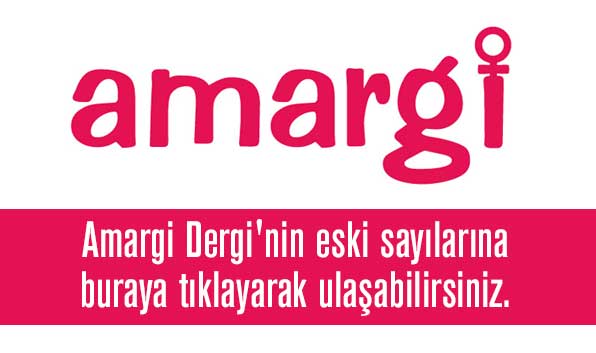No Place Left in the Cemetery of Fallen Women

Gamze Göker
Some say that certain social issues proliferate when those issues become widely spoken about in the media. Some issues, on the other hand, seem like they have proliferated, though they have not, due to their appearance in the media. While the bag snatching incidents, for instance, seemed to have incredibly increased before, almost no events seem to have taken place after the new amendments done in the Turkish Penal Code. The incidents, however, just lost their allure for the media, but we know that they still happen and maybe increasingly so.
The recent increase in the news on honor crimes also brings up the same question. Women are being killed almost every day in any city of Turkey by ‘relative men’ for the sake of purging their honor or in the name of tradition. Although the murder stories vary, the main plot is the same: women, who willingly or not, have slept with other men, are being killed by their relatives. The main reason is ‘other men’. The fact that legal law is also supporting this ‘illegal patriarchal law’ where one whose honor is adulterated and not the adulterator of the honor is punished, is also worth talking about. Now let’s remember Yasemin’s story, who was killed in Ankara in the month of July.
It’s not Şırnak or Diyarbakır, but Ankara. Yasemin is aware that her coffin will be put on a cold stone in a place very close to the Turkish Grand National Assembly, yet she has no one to protect her from that villain she is running away from. Why isn’t there anyone? Because there are no shelters, no laws, and no guards in the police station. There is nothing to protect her! Yasemin was killed by a bullet in her head shot by her brother who is the “actual owner of her hymen” . Yasemin was raped by her brother-in-law and sent back home on the first day of her marriage by her husband, whom she had lovingly married, since “she is not a girl”. The revenge for this was not taken either from the rapist brother-in-law or the husband who literally “got her killed” by sending her back home. Yasemin did not have an organization, association, or someone she could take shelter in the world of men. She was in Ankara, Turkey’s capital.
Yasemin’s brother and his father, accused of solicitation, are now in jail. While the rapist is at home, Yasemin is in her grave. The male relatives of Yasemin in the funeral warned the representatives of the women’s organizations by saying “Please say that this is an honor crime and not a crime of tradition. Does it mean that we summoned the family council just because we talked about this between the family? If they take this as a crime of tradition, we will be punished with 36 years in jail”. They knew that the Turkish Penal Code would protect the ‘honorable’. If the brother could make the court believe that this was an honor crime, then his punishment would not surpass 20 years. And we know that the number of the heroic Turkish sons who would undertake 20 years of life inside the prison should not be underestimated. What if the punishment for murdering Yasemin was more severe in the penal code, then wouldn’t the brother think twice before killing her? Would the solicitor father, although he had given up on her daughter, still undertake a lifelong sentence for his son or himself? Let’s say none of this would have happened; none of this happened. But couldn’t something be done about the statements of Yasemin’s mother Nurgül, who had initially said that her daughter’s murder was the decision of the father thus the common decision of the family council yet changed her statements in favor of the murderers due to the pressure from that same council? We know that the police did not protect the ‘dishonorable’ Yasemin. But why didn’t they protect her mother, who had a significant role in revealing the murder? Whose side are the police on? And whose side is the government, silent in all matters, and the parliament, inert regarding any action, on? Let’s talk about our position. What have women’s organizations done for Yasemin and her mother? What were they able do? What can they do?
I guess this is the most significant aspect of this issue since it’s not difficult to presume the standpoint of the penal code, government, police, and legislation. But what about us, feminists, and women’s organizations? Aren’t we on Yasemin’s side? Aren’t we all a candidate of being another Yasemin? Then let’s try to evaluate the activism of the women’s movement on honor crimes or crimes of tradition through Yasemin’s story.
Women’s organizations in the case of honor crimes have been sensitive to intervene by taking care of the funeral services when the families rejected to do so, supporting the left behind mothers of the victims, and trying to draw attention to the issue through condemning the honor murders by press statements and demonstrations. The most recent example of this was seen at Yasemin’s funeral. The women’s organizations who attended the funeral, inspired by the question of the hodja on whether the men who have sent Yasemin to death forgive her, have performed a demonstration in Ankara’s Yüksel Street . In the demonstration where eight women victims of honor crimes and crimes of tradition were theatrically represented in shrouds, the women declared that they do not forgive the murderers of women, law makers who protect them, security forces, authorities who do not open shelters, the media who judges the woman victim in the honor crime news, and the society who keeps silent to all of this.
Women’s organizations, however, have only been able to show a reaction after the women have died. Isn’t being able to do something before these murders more significant? The aim of course is not to put the blame on women’s organizations, but something has to be done in order to prevent the execution of the murders. We know that a significant road will be traversed towards the prevention of honor crimes if the number of the women’s centers and shelters which victimized women could consult were increased and if these places were well publicized so that women from every layer of society could consult these centers when needed. The local governments were put in charge of opening shelters with the new legislation. Can’t the women’s organizations strive more for the municipalities to implement their duties? The women’s organizations can oblige the municipalities to publish and distribute flyers, posters, placards etc. for publicizing the shelters which they were left obliged to open. The number of many others like Yasemin who are unaware of the women’s organizations and shelters would increasingly diminish if this were to happen. In the upcoming local and national elections, women’s organizations should ask the political parties what they plan to do for preventing honor crimes and violence against women and should not give up on being insistent on this issue. It can be transforming to work with the political parties.
They should also be insistent on taking the victims of violence and their acquaintances under protection. Let’s remember that a mother in Bursa who did not want to give her daughter back to the perpetrator husband was killed by the son-in-law’s family after leaving her daughter to the police station for her protection. The word “honor” must be added to the crime of murdering someone with an impetus of tradition defined under the 82nd item of the penal code. Women’s organizations had struggled for the addition of this word during the preparations of the new penal code yet failed to persuade the patriarchal law makers.
Just in the example where the Presidency of Religious Affairs realized a Friday sermon on the previous year’s March 8 Women’s Day, stating that violence against women has no place in Islam, the Presidency can be asked to work more on the prevention of honor crimes and even cooperate with the women’s organizations. It is vital that the Social Services and Society for the Protection of Children should immediately implement the duty of conducting the “Violence Hotline” given to them by the notice of the Prime Ministry published on July 4 related to the prevention of honor crimes/crimes of tradition. What will the Ministry of Education, which was provided with a responsibility in the same notice, do in order to prevent honor crimes and violence against women in school textbooks and curriculum? Striving for the publicizing of messages regarding the prevention of honor crimes in the press and audiovisual media, their existence in popular and widely watched serials like Kurtlar Vadisi (Valley of Wolves), falls on such institutions like the Turkish Radio and Television Corporation (TRT) or the Radio and Television Supreme Council (RTÜK). Recently formed feminist groups with an aim to watch media texts comprising discrimination against women and violence should pursue to what extent these duties are realized.
There is a lot to be said on this matter, but it’s more important to take action. We immediately have to do something because there is no place left for other women like Yasemin in the Cemetery of Fallen Women.
Meryem, Huri, Gülistan, Azize, and Edibe
According to the Report on Honor Crimes and Crimes of Tradition released by the Law and Order Office Presidency of the Security General Directorate on July 28, 1091 murder cases classified under the tradition concept of the responsibility areas of the police took place in the past six months. While 322 cases, comprising the 29% of the total, was executed due to ‘honor’, other reasons for the murders were interfamilial conflict, illicit affair, blood feud, sexual harassment, rape, and exchange of women for marital purposes.
July 5: The 16 year old Meryem, who got pregnant in an extramarital affair, was killed by her fugitive soldier brother with a machine gun in Gaziantep. The brother said, “I couldn’t accept this situation since she acted against our traditions”.
July 22: Upon returning to his father’s house with her two children due to marital conflict, Huri Akça went to Ankara with a man. Huri’s father found the address where her daughter stayed in Sincan and brought her back to Bursa. Huri was killed by her father with a gun while her mother and two children were present in the house. The murder was alleged to have been executed ‘with the decision of the family council’.
July 24: The 23 year old Gülistan Gümüş left her house in Diyarbakır and went to Istanbul upon fighting with her husband, with whom she had a religious marriage. Gülistan was persuaded by her acquaintances and taken back to her village where her execution decision was given due to her alleged betrayal of her husband. Gülistan, who was shot in the arm by her husband and acquaintances ran away to hide in a chest in her father’s house where she was found and killed by her husband and his acquaintances.
July 27: Azize Taş, who had run away with the person she loved in Urfa was persuaded to return home where she was killed by her brother who cut her throat.
July 28: Edibe Y., the mother of four children living in Diyarbakır, ran away to Istanbul with a man. Edibe’s husband found their address and came to look for them. He shot his wife and the man upon telling Edibe that he wanted to have a talk with her. Edibe and the man died. The husband said that he committed the murder due to ‘honor’.
No Place Left in the Cemetery of Fallen Women by Gamze GÖKER, PDF Version
Turkish Version of the Issue 2 of Amargi
From Amargi- Issue 2









